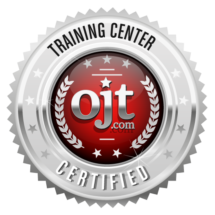
INDUSTRY-LEADING LIVE
INSTRUCTOR-LED TRAINING
World Class Training Content, Delivered On-Demand
BRIDGING THE GAP
between career seekers
& employers
from COAST-TO-COAST

World Class Training Content, Delivered On-Demand
between career seekers
& employers
from COAST-TO-COAST
Home Health Aides (HHA)
QUALIFICATIONS
National Association for Home Care and Hospice (NAHC) – Homecare Aid Certification, National Association of Long Term Care Administrator Boards (NAB) – Assisted Living Administrators License; and/or on the Job Training (OJT) programs, Apprenticeships, Healthcare Workforce Job Training or Experience; that include topics covering basic human anatomy & physiology, general health & hygiene, nutrition, prescription drug administration, basic nursing, patient handling, communication with patients, first aid & personal care for patients, elderly people and people with disabilities.
ANNUAL AVERAGE SALARY
(Credits: www.payscale.com)
| Entry-level (0-12 months) | $ 10.69 |
| Early career (1-4 years) | $ 10.99 |
| Mid-career (5-9 years) | $ 11.53 |
| Experienced (10+ years) | $ 11.71 |
PROJECTED GROWTH
(Credits: www.bls.gov)
Home Health Aides is an in-demand occupation, in which employment is projected to grow at an eye-popping 34 percent from 2019 to 2029.
SKILLS/ TRAITS NEEDED
Besides basic health care knowledge and nursing skills, the Home Health Aides must be proactive, agile, and alert with a high degree of patience, perseverance and have great listening, interpersonal, and communication skills; with compassion, dexterity, time management & prioritization, and most importantly be extremely flexible and committed to performing the HHA duties and responsibilities sometimes at odd hours; be self-organized, and liaise effectively and efficiently with the Medical Team and the patient’s household.
WORK FUNCTIONS
Home health aides play a highly critical support role in the health care system. They are quintessential “caretakers” of elderly individuals and chronic patients who are otherwise unable to care for themselves and need assisted care while living at home. They are primarily responsible to help and assist patients or individuals in their daily activities and nutrition, monitoring their health; and reporting progress or changes in their health, to the nurse, doctor, or physician. Allied responsibilities include changing bed linens, clothes, washing and ironing the patient’s laundry, cleaning the patient’s living space, administration of prescribed drugs, giving first aid, attending to emergencies while alerting the Medical Team, basic medical checks, and diagnostics, taking care of the health, well being, and safety of the patients, and generally ensuring that the patient is in good cheer. They have multiple options, including working in hospitals, long-term care facilities, daycare, or in private homes. They may be needed to work in shifts.
Related Careers